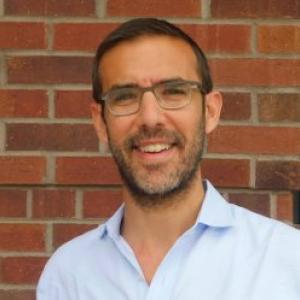Notes from the Director, Spring 2019

Joshua Weitz, Director of the Interdisciplinary Graduate Program in Quantitative Biosciences
Change is a feature of dynamic processes and, indeed, of dynamic programs.
“Nothing in biology makes sense except in the light of evolution.” Theodosius Dobzhansky’s message animates the study of living systems at scales from molecules to organisms to ecosystems. It serves as a reminder that change is a feature of life. Change is also a feature of dynamic processes and, indeed, of dynamic programs.
QBioS is now at the verge of wrapping up its 3rd year. We launched QBioS in September 2015, announcing a call for applications from the 2nd floor of the Engineered Biosystems Building. There was cake, and some sense of trepidation.
A few thousand emails later – and after reviewing applications, initiating recruitment, and welcoming admitted students for on-site visits – an intrepid group of 9 students entered as the inaugural class of the QBioS PhD . We have since grown into a vibrant program of more than 25 students across multiple cohorts immersed in coursework, research, and outreach supported by a committed group of more than 55 faculty.
This growth also means change in the way that QBioS works. Supporting a single cohort with a (relatively) uniform set of challenges is distinct from supporting multiple cohorts and even our first alum – Dr. Elma Kajtaz who walked as part of commencement ceremonies just a few days ago. To support the QBioS community requires that the program evolves: adjusting and refining existing structures and initiatives, introducing new mechanisms to support the needs and aspirations of its students, and also enabling students to take charge of their own PhD-s.
It is for that reason that we had our first community-wide Town Hall on May 8th. This event was jointly attended by students and faculty. Better than cake: there were many, very large cookies. In addition to the exciting news of fellowships, publications, and an upcoming hands-on workshop, the highlight of the town hall was the announcement of the formation of the QBioS Graduate Student Association.
The leadership of this student group includes Andreea Magalie (1st year, President), Kelimar Diaz Cruz (2nd year, Academic Chair), Joy Putney (3rd year, Social Chair), and Ali Zamani Dahaj (3rd year, Treasurer). This group introduced their intent to serve QBioS student interests, to act as a liaison between students and the QBioS program faculty, and also to work both within and across graduate associations to develop the kinds of programming that students want more of: networking, professional development, mentoring, and social events.
I am proud of this group. They have taken an important step forward to organize, lead, and advocate for themselves and the program. If you are a student: be sure to thank them and also talk to them about what you want to see from this group. But keep in mind, that they can’t do it alone, and will need involvement from students to enable this association to thrive and serve.
This model of involved leadership also extends to the program faculty. I am pleased to announce that Sam Brown will be leading a fellowship writing course for QBioS students in their 1st and 2nd years in Fall 2019. In addition, Will Ratcliff and Peter Yunker are serving as co-instructors at the May 13-14 Hands-On Workshop taking place in EBB on the theme of Microbial Games. Finally, I will be reaching out to the GC and members of the QBioS program faculty to help serve in other ways, matching faculty interests with program needs. As always, there are many ways to get involved and to share your skills, knowledge, networks, and wisdom with the next generation of scientists.
Best wishes for the Summer. See you all in August 2019 as we welcome the fourth cohort of QBioS trainees to our community here at Georgia Tech.
Sincerely,
Joshua Weitz
